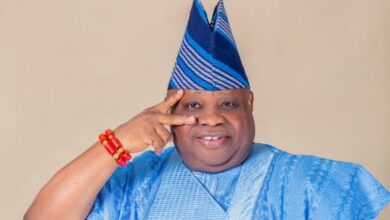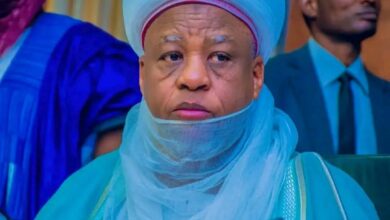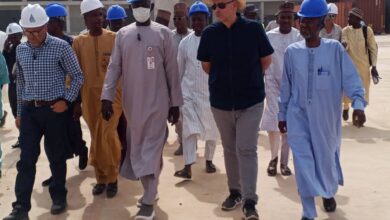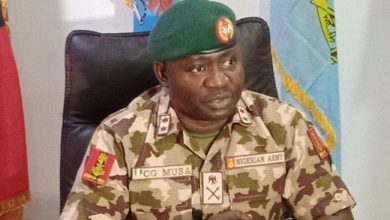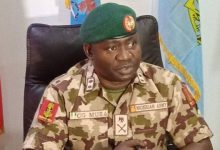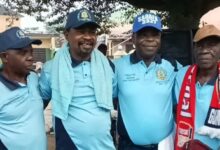Read MBO National Coordinator, Usman Ibrahim’s full speech at Bola Ahmed Tinubu Mentorship Conference in Lagos
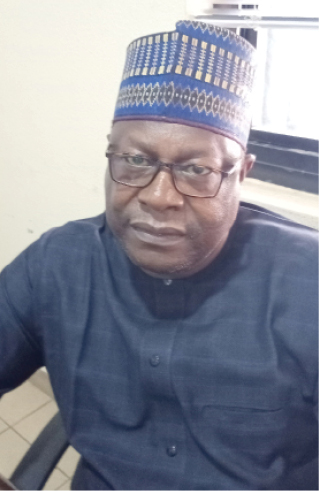
A DISCUSSION PAPER PRESENTED BY MALLAM USMAN IBRAHIM AT BAT MENTORSHIP CONFERENCE 2019 ON OCTOBER 5, 2019
THEME: MENTORING FOR PERSONAL AND NATIONAL DEVELOPMENT
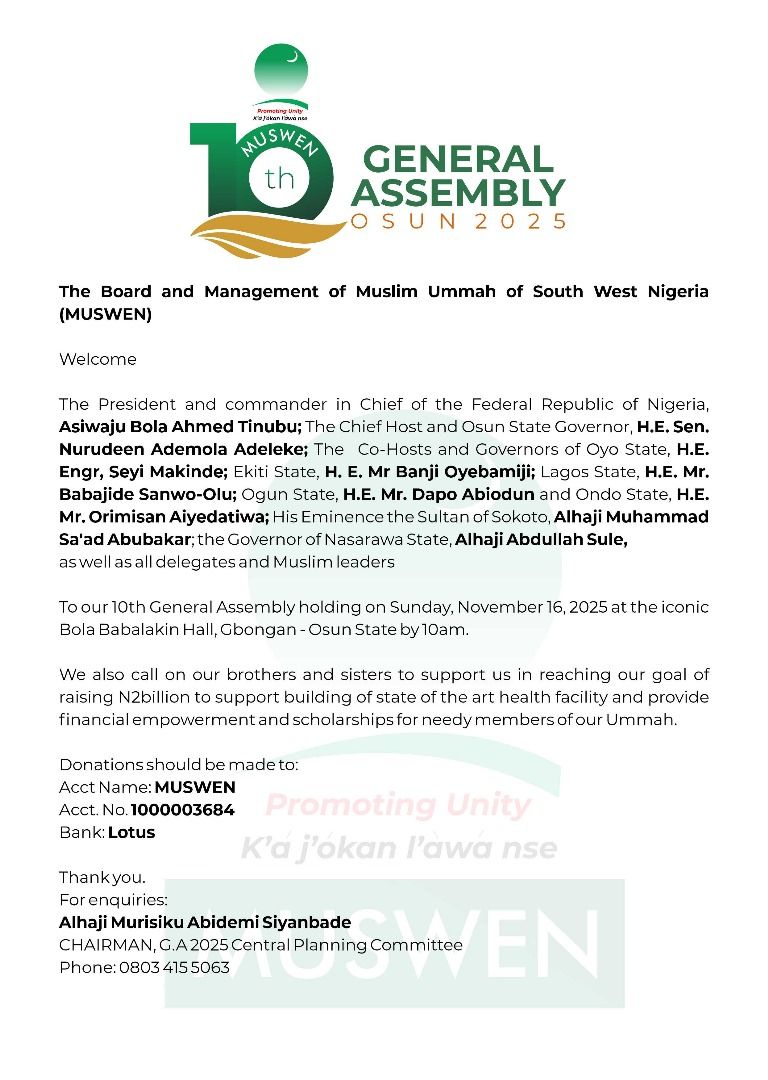
I feel humbled to be counted among the discussants of this all important topic. I also appreciate the organizers of this event who took time to select an appropriate topic that seems to be gradually waning from our national lexicon.
First and foremost, I will like to appreciate my mentor; Arc. Ibrahim Bunu who consciously polished, sharpened and prepared me to become a worthy player in the political and economic development of this country and to also salute the courage of those humble Nigerians who choose to come under my tutelage not minding my shortcomings.
My direct involvement in mentoring commenced in 2003 when I rallied other well-meaning Nigerians across the country to form All Youth Association of Nigeria (AYAN). This came at a time when youth participation in politics was at low ebb and we further registered it as a Non-governmental Organization (NGO) to promote peace and unity for national development.
Little did we know at the time that we were raising a generation of Nigerian Youths who would be willing to get involved in the socio-political and economic development of the country. Today, I can beat my chest to have mentored great minds across the divide of this country though on a scale I viewed as little.
My leader and mentor, H.E. Asiwaju Bola Tinubu-is standing tall among his contemporaries as the most formidable mentor in the contemporary political habitat of Nigeria. His ability to groom political god-sons is legendary and his penchant for standing by his mentees within the vagaries of political or economic storm is second to none. By his mentoring prowess, he has been able to stamp an indelible footprint in the political history of this country. He invested in these men and women he made and is making positive impacts in the lives of those that were privileged to undergo tutelage from his political theatre.
It is important to state that most of us have been admiring Asiwaju across the Niger for his giant stride in mentorship: he might have gathered lots of scars arising from betrayals, sheer abandonment, backstabbing, jealousy, envy and hatred by those he groomed from oblivion to reckoning. For him to have quickly recovered from those bitter experiences and continue to groom without closing the school showed the rare character he possessed. I must confess that this generation owes this great son of Africa a huge debt which it may never be paid!
Coming to the subject matter, the term ‘mentoring’, is interpreted in different ways, and is often used interchangeably with ‘coaching’. Both can be about sharing particular areas of expertise and knowledge that the mentee needs; as well as about developing the individual, whether or not they work in the same field. The two ‘processes’ can take place in the same session. For this event, the term ‘mentoring’ is used to cover all the processes involved in supporting the individual.
Mentoring is a system of semi-structured guidance whereby one person shares his knowledge, skills and experience to assist others to progress in their own lives and careers. Mentors need to be readily accessible and prepared to offer help as the need arises within agreed bounds (Farren, 2000).
Mentors very often have their own mentors, and in turn their mentees might wish to ‘put something back’ and become mentors themselves – it is a chain for ‘passing on’ good practice so that the benefits can be widely spread. Mentoring can be a short-term or long term arrangement until the original reason for the partnership is fulfilled.
Mentoring is more than ‘giving advice’, or passing on what your experience was in a particular area or situation. It is about motivating and empowering the other person to identify their own issues and goals, and helping them to find ways of resolving or reaching them: not by doing it for them, or expecting them to do it the way you did it, but by understanding and respecting different ways of achieving the task.
According to Roggoff (1990), mentoring is not counseling or therapy, even though the mentor is expected to help the mentee access more specialized avenues of help if it becomes apparent that this would be the best way forward.
Roggoff further posited that the core requirements in mentorship must consist of:
- “Chemistry”. This is an intense and very personal feeling – an initial connection or attraction between two individuals that may develop into a strong, emotional bond. It may be unstructured and unpredictable which forms the basis for an informal mentoring relationship.
- “Compatibility”. This occurs when individuals work together in harmony to achieve a common purpose. That means a more-seasoned person leading someone less experienced through a structured development program like the same way teachers facilitate learning in the classroom.
Farren, an American author who wrote the book, Eight types of mentor affirmed that if you want to be a successful mentor, the following questions must be satisfactorily answered.
- Are you interested in helping others to succeed – even if they may surpass you in achievement?
- Are you reliable, honest, and trustworthy to keep things confidential?
- Are you capable of active listening – not interrupting the process?
- Are you empathetic – can you convey understanding of their experience without launching into your own ideas?
- Are you able to question someone sensitively but strategically to help them discover their own values?
- Can you pass on your knowledge and expertise clearly, encouragingly and helpfully?
He concluded by saying that “if you can successfully provide answers to the above questions, then you are ready for a ride into a successful mentoring career which will in turn birth National Development”.
Going further, I will like to quickly point out the benefits accruable to a mentee in the following lines:
- Mentees gain from the mentor’s expertise
- Mentees receive critical feedback in key areas, such as communications, interpersonal relationships, technical abilities, change management and leadership skills
- Mentees develop sharper focus on what is needed to grow professionally within the organization
- Mentees learn specific skills and knowledge that are relevant to personal goals
- Mentees receive networks with more influential personalities from the cycle of the mentors
- Mentees gain knowledge about culture and unspoken rules that can be critical for success; as a result, adapt more quickly to the wider societal spectrum
- Mentees benefit from the mentors friendly and listening ears with which to share frustrations as well as successes.
At this point, I will like to draw home my presentation by pointing to the achievements of H.E Asiwaju Bola Tinubu in terms of improving personal development of his mentees and in turn impacting the National Development of the Nation. In the pool of Asiwaju’s mentees, some are involved in active politics while many may never climb the political ladder but are making great impacts in the media, oil and gas, education, industry, transportation, to mention but few. In Nigeria of today, Asiwaju is in the league of those selfless individuals that have given birth to men and women who are positioned to impact the national development of this nation up to the next century.
Permit me to conclude with this wisdom from my late father; Mallam Ibrahim who said and I quote “a fulfilled father is the one who trained and prepared the children to discover their purpose in life as well as supporting them to accomplishment rather than leaving behind great wealth into the hands of untrained generation; because, the future is safe with those that were adequately mentored while the future is at risk with those that were not mentored”.
I therefore enjoined as many that have the capacity to groom the future leaders, entrepreneurs, investors, inventors and the generation of those that will transform the nation, not to hesitate to enlist these youngsters into the mentorship experience. Not minding the insult, the name calling, the blackmail and the pains involved.
In the present day Nigeria, mentors are often abused, insulted and branded as the “godfather” who many seem to avoid like a leper. This to me is a disservice to those that took pains to mentor us! I enjoin the younger generation here present to deviate from such path and imbibe the culture of celebrating our mentors.
I said before and I say now, be ready for the task, be prepared for the challenge, reward may be delayed denied; the impact is engraved beyond the capacity of any mortal to erase-it must definitely speak.
Thank you for your attention.
Mallam. Usman Ibrahim
(Sardaunan Samarin Naijeria)
National Coordinator (MBO Dynamic Support Group) and
CEO-Musco Nig. Ltd.


